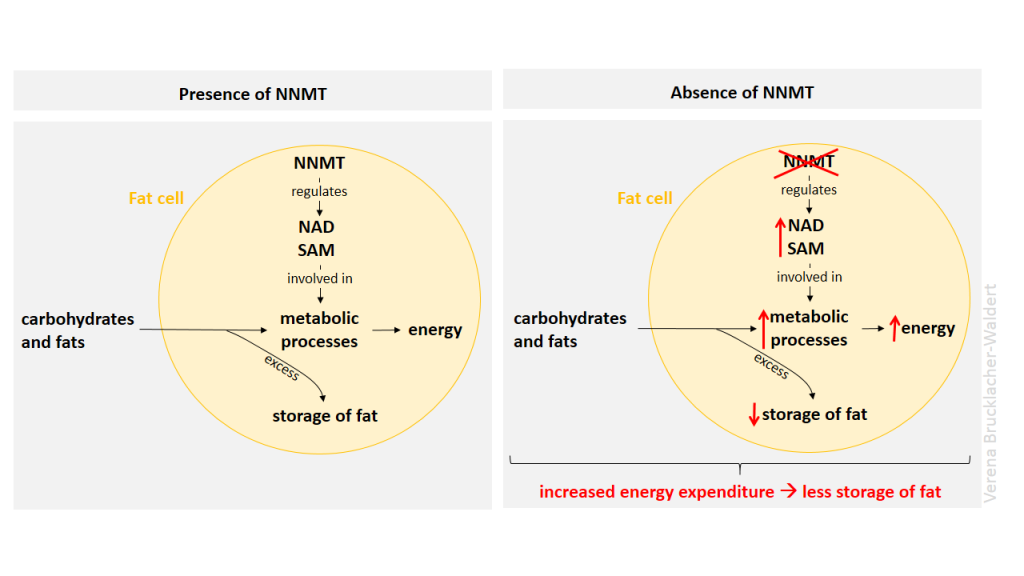MONDAY, 28 APRIL 2014
Since the industrial revolution about 200 years ago, our diet and lifestyle have changed dramatically: An increase in consumption of processed carbohydrates (e.g. refined grains) and saturated fats (e.g. in meat from fat stock and ready-made meals) accompanied with a decline in physical exercise, have created a nutritional overload. Excess of carbohydrates and fats are converted into storage fat rather than transformed to energy by metabolic processes. This ultimately results in diet-induced obesity and ‘high fat diet’-associated diseases, such as type 2 diabetes and fatty liver.How does an inactivation of Nnmt prevent weight gain? The researchers found that leanness of Nnmt-knockdown mice is due to increased energy expenditure. The underlying molecular mechanism involves NNMT, the gene product of Nnmt, and the molecules Nicotinamide adenine dinucleotide (NAD) and S-adenosine methionine (SAM): In fat cells, NNMT decreases the availability of NAD and SAM, which both support metabolic processes converting food into energy. Hence, Nnmt-inactivated mice have increased levels of NAD and SAM compared to Nnmt-competent mice and, therefore, convert more food into energy and store less food products as fat.
Considering the more than 1.4 billion overweight adults (according to the WHO in 2008), targeting NNMT could be a promising approach for treating obesity and type 2 diabetes. However, it remains to be elucidated whether inhibition of Nnmt can promote loss of fat in mice being already overweight. Moreover, relevance for the human metabolic systems has to be assessed. Analysis of urine samples from type 2 diabetes patients revealed elevated levels of NNMT-dependent metabolites, indicating a role of NNMT in human obesity-related diseases.
doi:10.1038/nature13198
Written by Verena Brucklacher-Waldert

